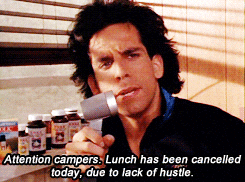Time Well Spent 017: Injured, Not Inflated - Nutrition Strategies For Dads Recovering From Injury
You finally got into a workout groove… then, BAM – injury.
Now you’re stuck on the sidelines for 4-6 weeks, and the thought of sitting still sounds like a one-way ticket to weight gain and cabin fever.
As busy dads, we juggle a lot—work, family, and fitness. So, when an injury forces us to slow down, it can feel like slamming the brakes on progress. But here’s the good news: you can stay on track without logging hours in the gym.
With a smart eating strategy and a few simple tweaks, you can maintain your fitness and avoid unnecessary weight gain. Here’s how:
1. Carb Cycling: Fueling Smarter, Not Harder
Carb cycling isn’t just for elite athletes—it’s dad-friendly and effective.
Carb cycling can be complex if you're trying to get into single digit bodyfat percentages -- but lets be real, that aint us. Generally, the recommendation for low carb days is sub 50g, but if you aren't counting macros (my POV is you should really only be tracking protein intake) -- strict carb cycling is going to feel daunting.
DO THE SIMPLE SHIT -- this is just as much psychological as it is physiological. You just lost control of your ability to move, controlling how you eat gives you another lever to regain control.
Carb Cycling Basics
The idea? You adjust your carb intake based on your activity level:
✅ Higher-carb days (when you’re moving more, like during rehab or light workouts)
✅ Lower-carb days (when you’re mostly resting)
For example, on a higher-carb day, you might have oatmeal with fruit at breakfast and brown rice at dinner. On a lower-carb day, you focus on protein and veggies, keeping carbs minimal. This keeps your energy balanced while preventing fat gain.
Generally, I recommend 5-6 days low carb, 1-2 days higher carb during this recovery period.
2. Caloric Control (Without Starvation Mode)
Since you’re less active, your body needs less fuel—but that doesn’t mean starving yourself.

Think of it like a car: if you’re driving less, you don’t need to keep refilling the gas tank.
🔹 Trim portions slightly (skip the second helping of pasta)
🔹 Cut out mindless snacking (no more grabbing your kid’s leftover fries)
🔹 Eat nutrient-dense foods (protein, healthy fats, and fiber keep you full)
This keeps you in a slight calorie deficit—enough to maintain your weight while still getting what you need for recovery.
Again -- you're prob not a professional athlete, and you also are burning it at both ends being a dad, excelling at work, and trying to stay sane. Caloric defecits are a stressor -- so if cutting down on intake is causing stress, then don't do it.
3. A Simple 4-6 Week Nutrition Game Plan
Here’s how to apply these strategies in real life:
➡️ Week 1: Clean Up Your Kitchen – Remove junk food and stock up on high-protein snacks (Greek yogurt, nuts, cut-up veggies).
➡️ Plan Your Meals – Cook in batches (grilled chicken, turkey chili) to make portion control easy.
➡️ Carb Cycle Your Week – Adjust carbs based on movement. Rehab or light workouts? Add carbs. Rest day? Go lower-carb.
➡️ Smart Portion Control – Use a smaller plate, eat slowly, and load up on veggies first.
➡️ Watch your fats – Get a oil sprayer, opt for lower fat protein (choose 99/1 ground turkey instead of 85/15 ground beef), skip that handful of almonds, and avoid snacks with added seed oils (potato chips, etc). This shit adds up more than you know, and if you're not active to burn it off, these choices that didn't make much of an impact become something to watch.

4. Dad-Proof Tips to Stay on Track
🔹 Meal prep the easy way – No fancy recipes. Just bulk-cook proteins and veggies.
🔹 Manage cravings – Drink water first, eat high-protein snacks, and allow small treats in moderation.
🔹 Stay (gently) active – Even with an injury, find ways to move (seated exercises, walks, light stretching). I've ACTUALLY been doing abs since both my shoulders, my right wrist and left knee are fucked -- so I'm very limited on what I can do.
🔹 Be flexible – Some days, you’ll need more food or rest—adjust as needed. This is intuitive nutrition, once you remove all the processed shit, you'll start to understand the signals your body gives you.
Patience Wins the Long Game
An injury is frustrating, but it’s temporary. With a little discipline, you can maintain your progress and even build new habits that last beyond recovery.
Stick with these small changes, trust the process, and you’ll bounce back stronger—without the extra “dad weight.” This injury will eventually become nothin' at all to ya.

Example Low and High Carb Day Meals
Low Carb Meal Examples
Breakfast: Avocado, Berry and Protein Powder Shake or Veggie omelet (use those leftover veggies in the fridge) or Greek yogurt with a few berries. Protein in the morning will keep you full. If the kids are having cereal or pancakes, you can join with a smaller portion and extra eggs on the side.
Lunch: I call this the garbage bin salad -- Big chicken or tuna salad. Load it with mixed greens, cherry tomatoes, cucumbers, peppers – the works. Add a spray of olive oil and a drizzle of baslamic vinegar. Skip the croutons and the premade salad dressing; you won’t miss them with all the other textures. Another option: lettuce-wrapped turkey burgers or leftover grilled chicken with steamed veggies.
Dinner: Baked salmon or grilled chicken breast with broccoli and cauliflower “rice” (those riced cauliflower packs are a lifesaver) or zucchini noodles with meat sauce. Fajita night works too: skip the tortilla and have the seasoned chicken/peppers/onions over salad. Family can have the tortillas and rice; you pile on the fajita fillings to a bowl and top with salsa and guac. You’ll be surprised how little you miss the carbs when everything is flavorful.
High Carb Meal Examples
Breakfast: (for active or refeed days): Oatmeal cooked with milk, topped with banana and peanut butter. Or whole-grain toast with avocado and a fried egg. These give you energy and fiber – great if you’ve got a rehab session or just need a morale boost.
Lunch: (active or refeed days): A turkey or grilled veggie wrap using a whole-wheat tortilla, or last night’s chicken stir-fry leftovers with quinoa. Even a sensible portion of your favorite rice and bean bowl works here. The idea is to include a wholesome carb to refuel – just keep the portion moderate (e.g. one wrap, not two).
Dinner: Grilled chicken with a baked sweet potato and asparagus, or a hearty stew with meat, potatoes, and plenty of veggies. If it’s family pizza night and you’re making progress in recovery, go ahead and enjoy one slice with a side salad – just don’t polish off half the pie. My go-to here -- pregame pizza night with a chicken breast or two before you go. The goal is balance: enjoy healthy carbs in controlled portions.







Responses